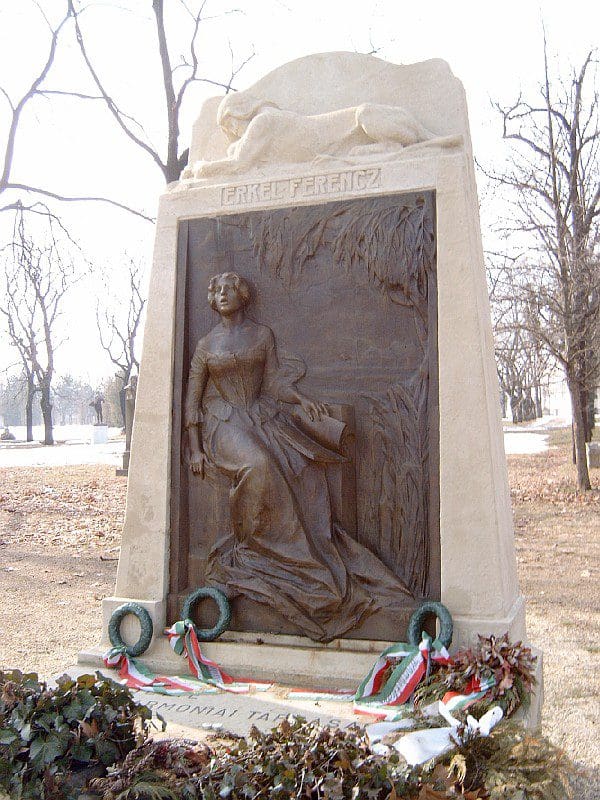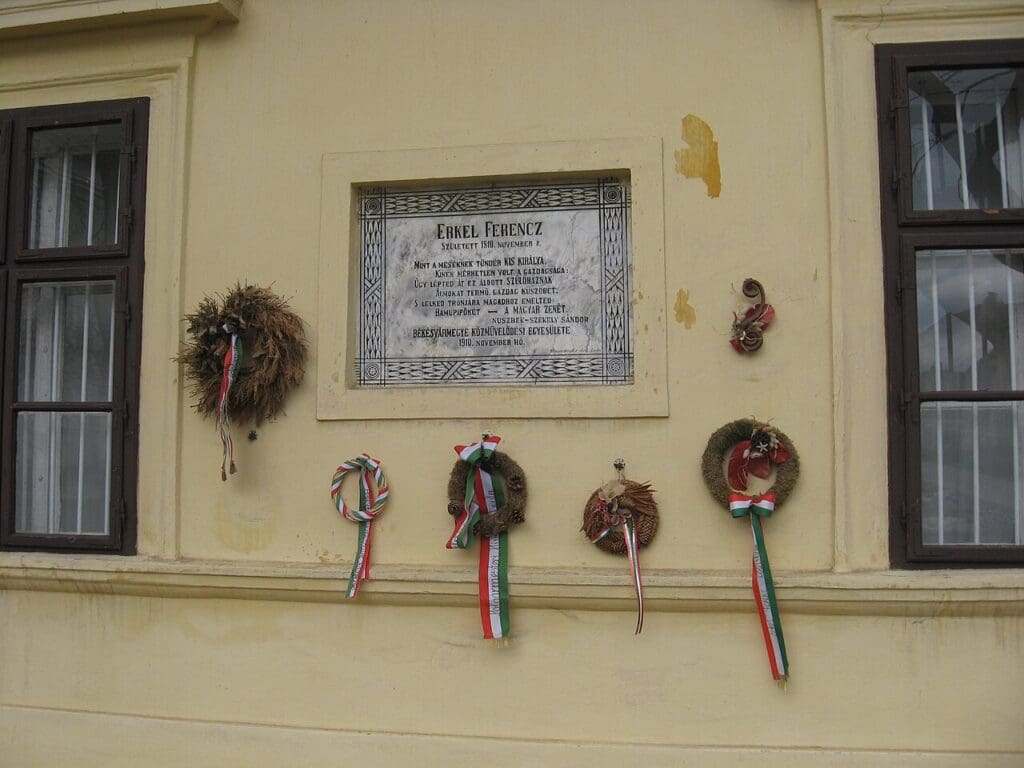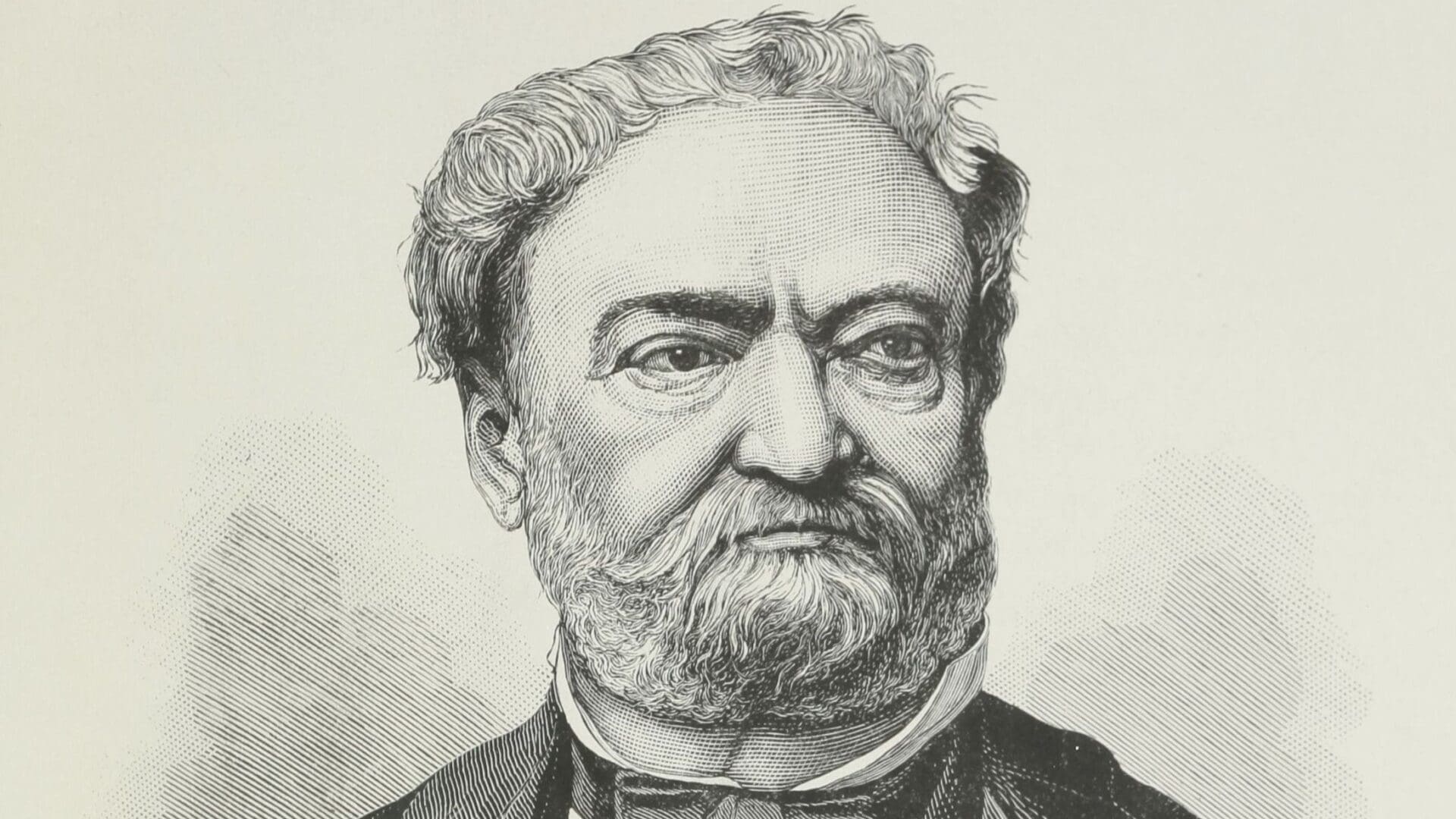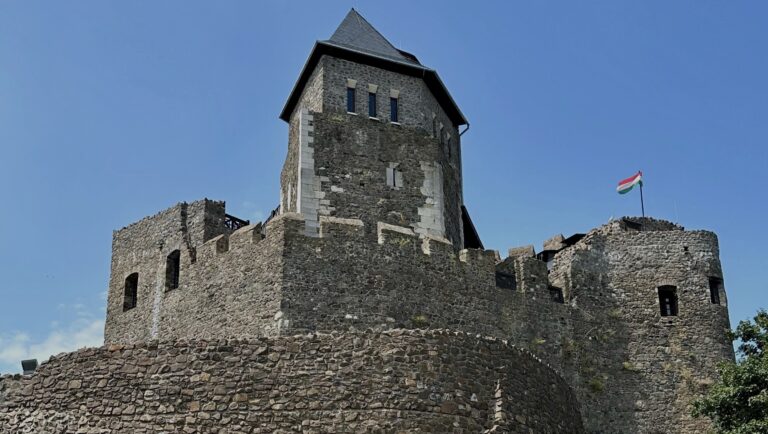Ferenc Erkel, the greatest Hungarian composer and conductor of the 19th century, is widely celebrated for his contributions to classical music. His legacy, which continues to inspire and captivate audiences to this day, ensures that his name will live on forever. As this exceptionally talented composer passed away on 15 June 1893, this day is dedicated to commemorating him and his extraordinary legacy.

The ethnic origins of the Erkel family have been subject to speculation, with some indications pointing towards a German heritage. Born on 7 November 1810 in the Békés County town of Gyula into a family that had a strong musical lineage going back three generations on his father’s side, Ferenc Erkel’s fate seemed predestined. However, no one could have anticipated the extraordinary heights to which his prodigious talent would rise.

Possibly due to his family’s connections, he started his carrier in music in the circuit of musical professionals in the city of Kolozsvár (now Cluj, Romania). There he had a chance of meeting with different talented composers, who influenced him significantly and also encouraged him to incorporate into his work the musical traditions of the Székely. As he started to become increasingly popular among the Hungarian public, he was invited to perform at concerts. Unfortunately, albeit there is a strong indication that his works gained success, hardly anything from the music he wrote at that time survived.
Ferenc Erkel arrived in Budapest as a composer at a historical time in 1835, when his talent was most needed. In the country’s largest city
Erkel soon joined a community dedicated to fostering the Hungarian language, Hungarian theatre, and Hungarian music
—the era of European nationalism was on the rise at this point in history, and Hungarian high culture was also starting to take shape. As Hungary was ruled by the Austrian Habsburg dynasty, for Hungarian nobles and commons alike enriching the Hungarian culture and modernising the Hungarian language was an important common goal. And whereas in the sphere of national literature certain remarkable milestones had already been reached, the triumph of national music still waited for the one who would make it manifest.
Gladly, Ferenc Erkel realised where his talent was needed the most. After the bankruptcy of his initial workplace in Pest due to its hardly accessible location, for a short while Erkel worked in the German theatre of Budapest. Erkel soon realised, however, that he needs to change his place of work in favour of the newly built Hungarian Theatre—even though the by this time popular and well-known composer’s salary decreased as a result of his choice, his patriotic feeling was so strong that he wanted to work for his country and his culture, whatever it took. Under Erkel’s leadership, the quality of the performances at the theatre gradually rose. Besides his theatre work,
he held the esteemed positions of both director and piano teacher at the Hungarian Academy of Music until 1886,
showcasing his exceptional talent and dedication to the world of Hungarian music. Later, his remarkable influence also extended to taking a leading role in the creation of the Hungarian State Opera House in Budapest, which commenced in 1884, with him serving as its musical director. His notable works include a magnificent Festival Overture, known for its majestic qualities.
It was him who introduced Hector Berlioz to the unforgettable melody of the Rákóczi March,
which became a part of Berlioz’s masterpiece, The Damnation of Faust, highlighting Erkel’s enduring musical influence on the wider European culture.
Even all these remarkable deeds would probably be enough to etch his name deeply into the hearts and souls of the Hungarian people as one of the sources of Hungarian national high music. However, that is not where his contribution ends. Without a doubt, one of Ferenc Erkel’s most significant legacies lies in his remarkable achievement of setting Ferenc Kölcsey’s stirring poem, the Himnusz to music, which today serves as the anthem of Hungary.
Erkel’s Most Famous Contribution to Hungarian Culture: The Musical Setting of the Himnusz
As magnificent as the Hungarian national anthem, Himnusz in Hungarian, sounds, its journey to become the song that unites the hearts of all Hungarians was full of obstacles.
The poem, written by Ferenc Kölcsey, was initially published in 1828, but this first and then the subsequent 1832 publications did not garner much attention from the public. It was not until 1844 when Endre Bartay, the Director of the National Theatre, invited applications to compose a musical arrangement for Kölcsey’s Hymn that it started to gain recognition. Despite receiving numerous submissions for the competition, Ferenc Erkel’s musical setting was selected as the winner. One of the most exquisite performances of the Hungarian national anthem was that by the Hungarian National Philharmonic Orchestra and Choir, conducted by the great Hungarian pianist and conductor Zoltán Kocsis.
A Magyar Himnusz / The Hungarian National Anthem
Kölcsey Ferenc költeményéből, Erkel Ferenc zenéjével. 1903-ban lett az ország törvénybe foglalt himnusza. Előadja a Nemzeti Filharmonikus Zenekar és Énekkar. Karigazgató: Antal Mátyás Vezényel: Kocsis Zoltán Rendezte: Horváth Ádám A Magyar Televízió felvétele Poetic prayer written by Ferenc Kölcsey (1823), music by Ferenc Erkel (1844). The official national anthem of Hungary since 1903.
On 2 July 1844, Kölcsey’s Hymn with Erkel’s music was presented to the public and immediately became a success, deeply resonating with the audience.
Over the following months, the Hymn gained popularity and was frequently performed as Hungary’s unofficial national anthem at significant public gatherings.
However, even with its popularity among the Hungarian public, the Himnusz was not recognised by the state for long. In fact, it took a more than 150 year to surpass all the impediments, Austrian and then Communist censorship, religious hostilities and tumultuous events of the 20th century in order for the Himnusz to become an anthem that unites the Hungarian nation.
It was only in 1989 with the fall of Communism that Kölcsey’s Hymn with Erkel’s musical arrangement was officially recognised as Hungary’s national anthem.
In an earlier article, Hungarian Conservative described in detail the hard journey the Himnusz had to go through to become the country’s national anthem. This journey symbolises the historical trajectory of Hungary as a country. The anthem with Erkel’s musical setting is also a powerful representation of Hungary’s historic and cultural identity as well as core values. The poem captures the essence of a nation’s history, culture, and aspirations while the music emotionally captures the gist of the Hungarian state of being.
It was not only Erkel’s musical setting for the anthem, but his other works, too made their mark on the Hungarian national identity and music. During the 1848 revolution the National Theatre (where Erkel worked at the time) played a major role in encouraging a national revolutionary spirit.
On the evening of 15 March, the revolutionaries demanded that the famous Hungarian historical play, Bánk Bán as well as the Himnusz and one of Erkel’s operas, László Hunyadi be performed at the Hungarian Theatre, as an act of defiance of the Habsburg rule.
All of these works of art had a special appeal to Hungarian patriotism that fuelled the revolution and angered the Habsburg establishment.
Although Erkel himself did not participate in the freedom fight that followed until 1849, many of his works were censored afterwards. In the first couple of years following the defeat of the revolution and freedom fight, he did not compose at all. It took decades of hard work for him to gradually reintroduce some of his earlier patriotic works and Hungarian melodies into Hungarian theatre under the strict censorship rules of the Habsburg administration.
Marking the easing of the Habsburg oppression and total control over Hungarian cultural life, in 1861 Erkel’s famous opera version of Bánk Bán was presented to the public again, to a thundering success. (The libretto of the opera, written by Béni Egressy, had been censored but the opera was performed on the eve of the 1848 revolution.) Bánk Bán marks not only the peak of Erkel’s musical career, but also the birth of Hungarian-language opera. Bánk’s air, or as it is commonly known, the ‘Hazám, hazám’ (‘My homeland, my homeland’) air is considered to this day the ultimate cultural synthesis of Hungarian patriotic feelings. It is worth listening to a superb rendition of the piece by Vietnamese Hungarian opera singer Ninh Duc Hoang Long.
Erkel Ferenc – Bánk bán – Hazám, hazám a nemzeti ünnepünkön Ninh Duc Hoang Long tenor előadásában
Kövessenek minket közösségi felületeinken! ► Facebookon: https://www.facebook.com/hirtv/ ► Honlapunkon: https://hirtv.hu/ ► Instagramon: https://www.instagram.com/hirtv_official/ ► TikTok-on: https://www.tiktok.com/@hirtv_official?lang=hu-HU
Aside from his contribution to Hungarian music, Erkel was an internationally acknowledged chess player as well.
During the mid-1850s, he was the top Hungarian chess player, initially alongside József Szén and subsequently on his own for a span of two to three years following Szén’s death. Erkel’s influence extended beyond his individual achievements, as he continued to play a significant role in shaping the Hungarian chess scene. Following his retirement from active competition, Ferenc Erkel demonstrated exceptional skills as an organiser, leaving a mark on the chess community in Pest and Buda. While Erkel’s prowess as a player was unquestionable, his true greatness resided in his commitment to preserving the essence of chess and his tireless efforts in fostering the development of emerging talents. Through his dedication and organisational talent, Erkel ensured that the game of chess continued to thrive in Hungary, helping groom new, promising talents .








